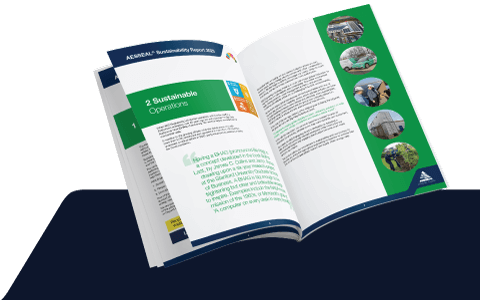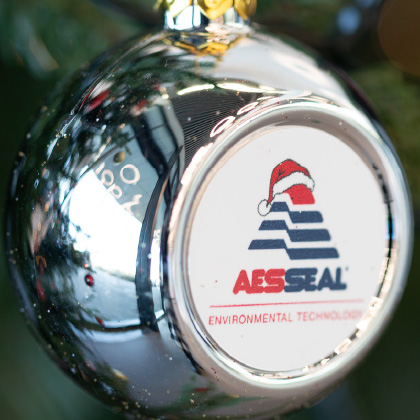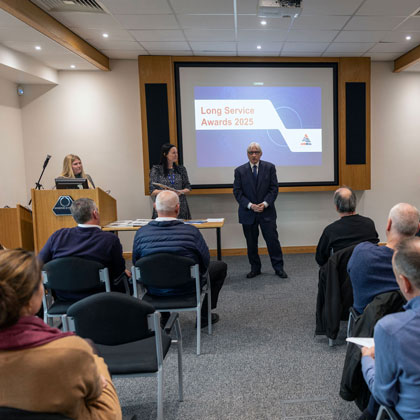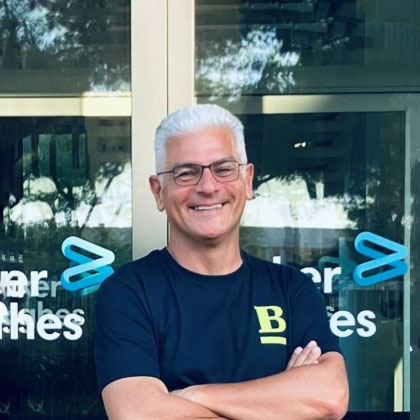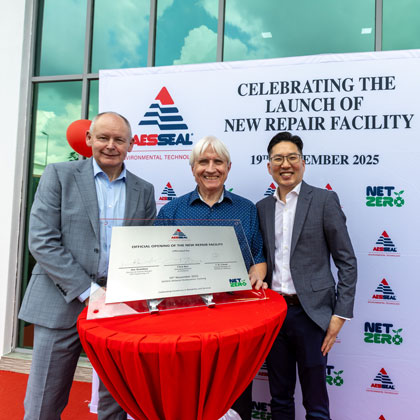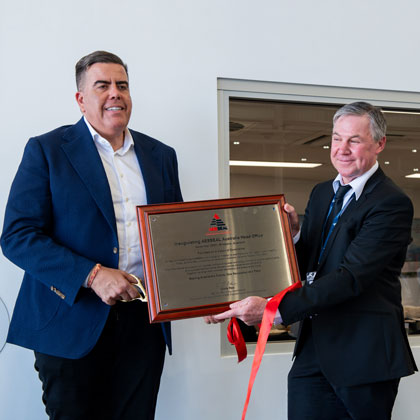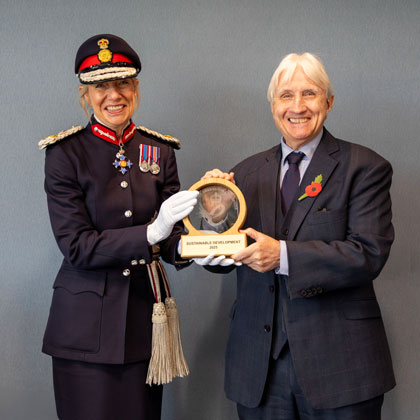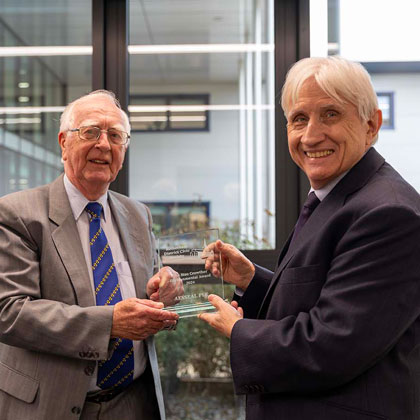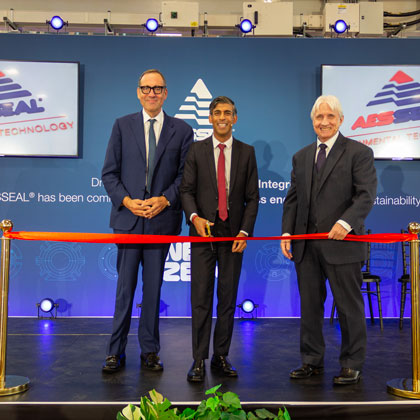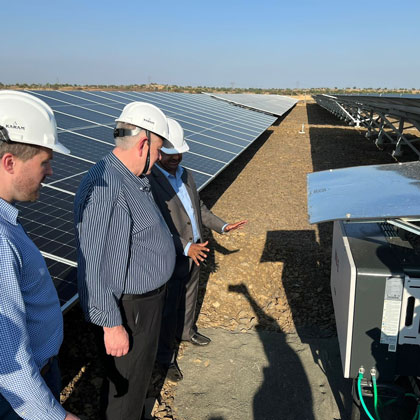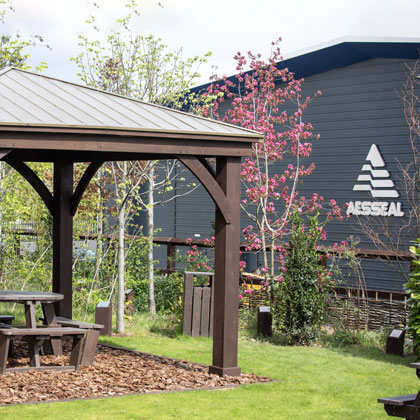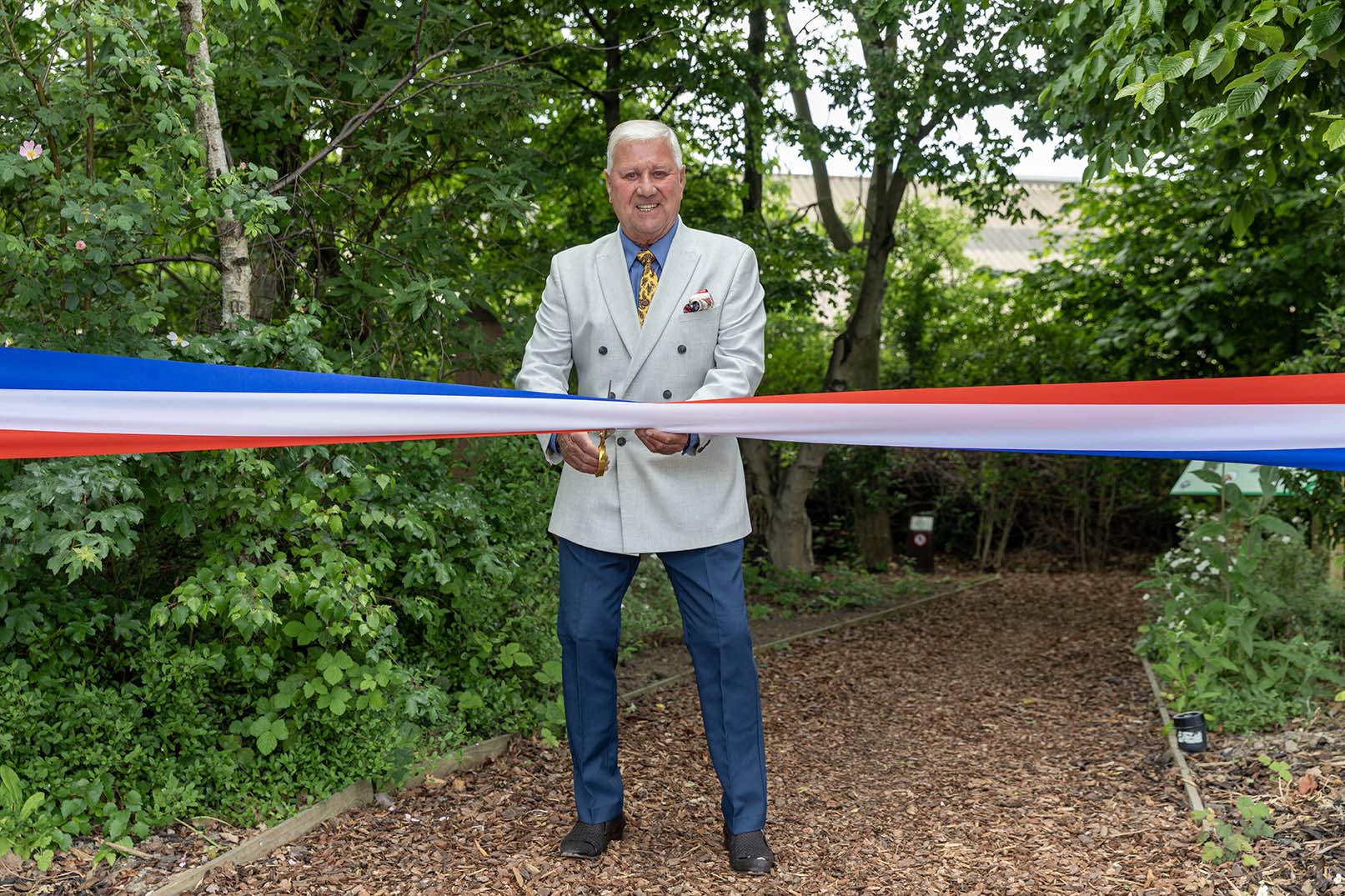
Untamed fields of rich mud dominated the landscape, with sparse shoots of grass – and that was after reclamation had prepared the site for industrial development. The area needed business to create gainful employment, but industry tends to grab nature’s home.
The make-up of the area, and the world in general, was changing. Someone had to set an example and look to the long-term future.
The land houses AESSEAL’s ten-acre Factory for the Future – and alongside it sits a newly opened one-kilometre Tree Walk.
It’s educational, fun and a pleasant place for staff to enjoy a break and children to visit, but it’s also part of a much bigger picture.
The company, which has pledged to invest £29 million by 2029 on environmental initiatives, now operates its entire Mill Close site – which contains 175,000 sq. ft. of new buildings – without the use of any natural gas.
What may have once been viewed as a contrast serves as a visible, tangible example of how industry and nature can grow together and live with each other to provide our planet with a chance of long-term survival.
Sustainability has been the driving force behind the three decades long tree walk project, and indeed the growth of the company, resulting in the environmentally friendly trek that aligns with AESSEAL’s global commitment to reducing carbon emissions and promoting green innovation.
Group managing director and founder Chris Rea has built the walk because he wants to guarantee a future.
Last week AESSEAL invited its first official visitors to the new facility, which was opened by Rotherham United chairman Tony Stewart and attended by 28 children from St Bede’s Catholic Primary School in Kimberworth, as well as Olympic Games silver medallist Peter Elliott, representatives from the Millers, business and education, youth sports clubs, Rotherham Titans Rugby Club and the media.
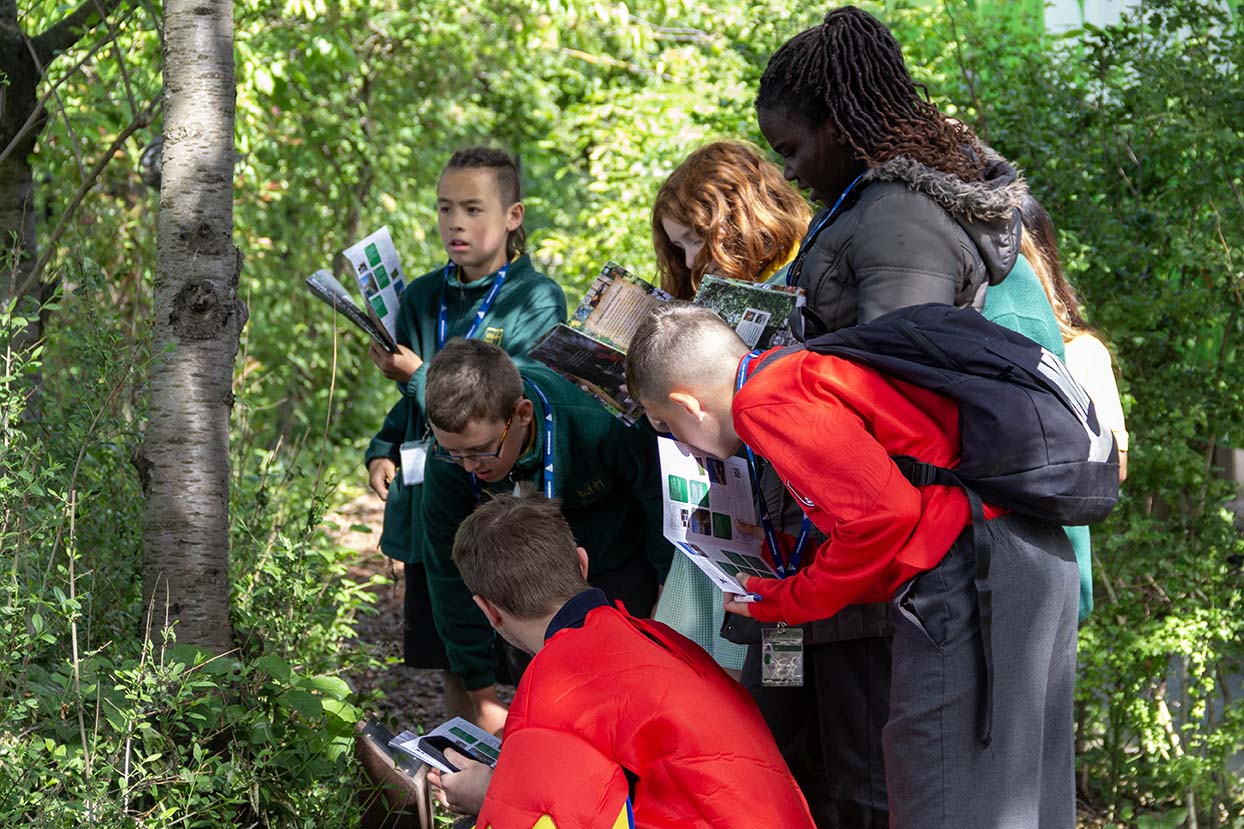
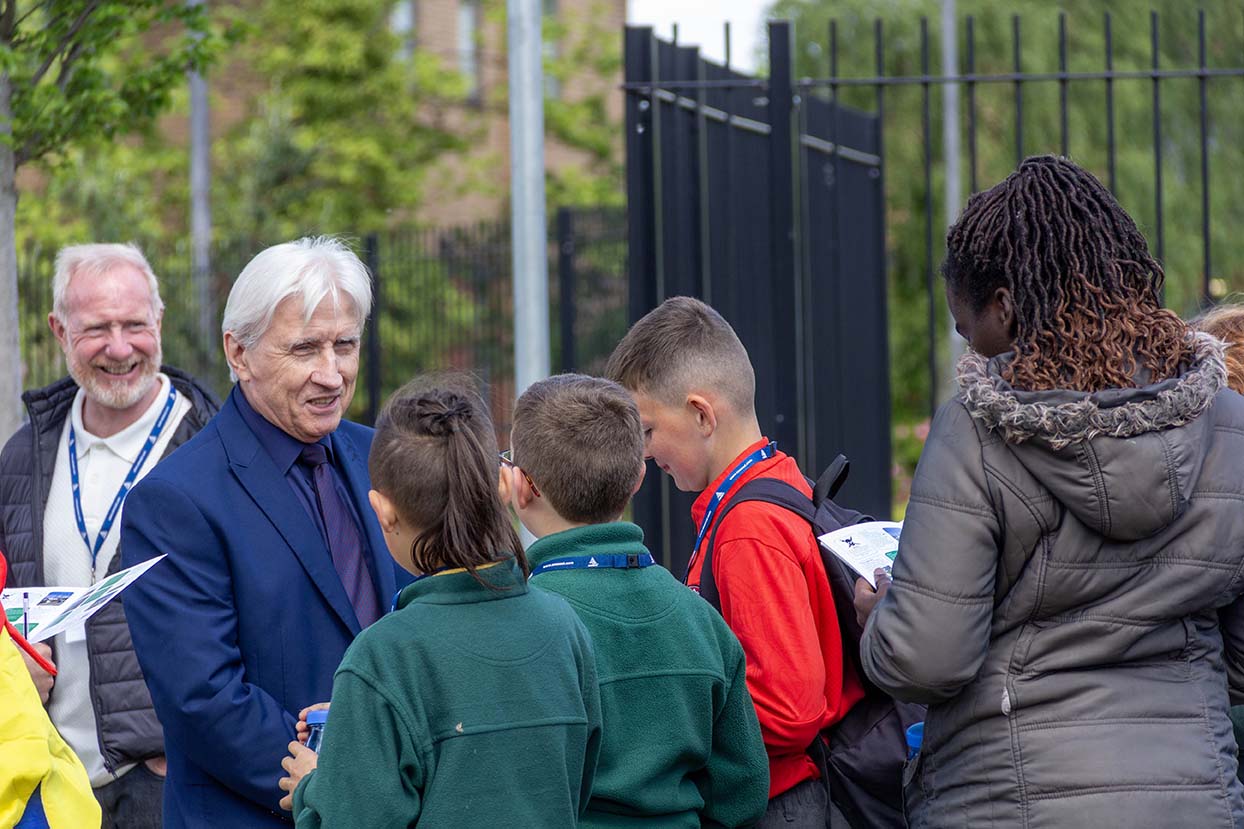
Chris said that around 20 years ago William Hague – after he stepped down as leader of the Conservative Party – was one of the company’s three board members and asked questions about what could be done with regard to the environment as the area was developed for industry. The original suggestion was to build a pond but, like the company, the project grew beyond recognition.
He said
It's something that has been created over a long period, and we’ve just enhanced it and developed it, and planted more and more trees and added more attractions like wildlife sculptures, the seal family, brass etching stations, wildlife and plant life boards, as well as providing a home for rescue hedgehogs and bees. Add to that a treasure hunt and we have a fun and educational amenity aimed at primary school children.
Schools will be able to visit by appointment and take in the bug hotels, a pond, a wide variety of trees, a hedgehog crossing, meadows and woodland, as well as hives for 60,000 bees, all accompanied by interactive information and facts available by scanning QR codes.
Early doors visitors – alongside the children from St Bede’s – have included a kingfisher, a fox and her cubs, and a great tit, who recently hatched six chicks in a bird box installed on the trail.
Prior to the opening, staff have been using the facilities, including a picnic and meeting area. It’s a relaxing, peaceful place to sit and enjoy lunch or to take in the fresh air.
Some people really love it and come out every day. We even have colleagues who come in the depths of winter and put warm clothes on and go and sit on one of the benches, play chess or have their flask of coffee. People like it.
I think most companies fail to understand that the soft issues, how people feel, their mood, their morale and motivation is just as important as monetary matters. When people have got enough, they want to work with nice people, they want to feel that the company they are with is doing more good than bad. The value of high levels of motivation is immeasurable but provides tangible results.
Chris said
The walk has cost hundreds of thousands of pounds to create and develop, but as Chris says: “It’s nothing compared to what our business has invested in the environment.
“We've made a commitment to spend £29 million by 2029 on environmental projects. We did this at the time of COP 26 and we’ve kept a record of it, a video diary, and we have now committed £26 million of expenditure.”
He hopes the walk will inspire other companies to act to preserve the planet for future generations, and adds: “If you pursue excellence, there’s nothing excellent about destroying the environment. There’s nothing excellent about not being a good corporate citizen. There’s nothing excellent about not doing what you can do to continuously improve things. It’s just what we do.”
Chris ensures the company is as good as his word.
Replacing old cladding and roofing with new materials has now resulted in the thermal energy balance being sufficient to utilize as much power as possible from the building’s 3,000 solar panels and 2.2MW of batteries.
Group engineering director Stephen Shaw said: “Around 16 years ago we switched to using only green electricity for production, but we still used substantial amounts of natural gas, that can never be green, for heating.
“It was only possible to completely eliminate natural gas by replacing old cladding and roofing with new materials that greatly improved insulation.”
The modelling and heat loss calculations, carried out by specialist suppliers and overseen by the Quality Assurance and Engineering department, were extremely complex and the result will be a reduction in CO2e emissions of approximately 102.8t/CO2e/annum – essentially removing 60 per cent of the natural gas used by the plc group.
The development is called the Factory for the Future for more than one reason – it is designed to seamlessly integrate manufacturing with nature and with the aim of proving that industrial growth and environmental stewardship can go hand in hand.
Plus, the company wants to show the young people who visit that it is playing its part in ensuring there is a future for them and setting an example for others to follow.
Back on the tree walk, the children from St Bede’s may be unaware of the natural gas development, but they are learning about the value of plants, trees and wildlife in an industrial setting.
Cutting the ribbon to open the walk, Tony Stewart said:
What this company has done is incredible, not just in manufacturing, but in thinking about the finer things in the world, allowing wildlife to exist.
Credit is due to Chris and AES for achieving this and for what they have achieved for Rotherham.

